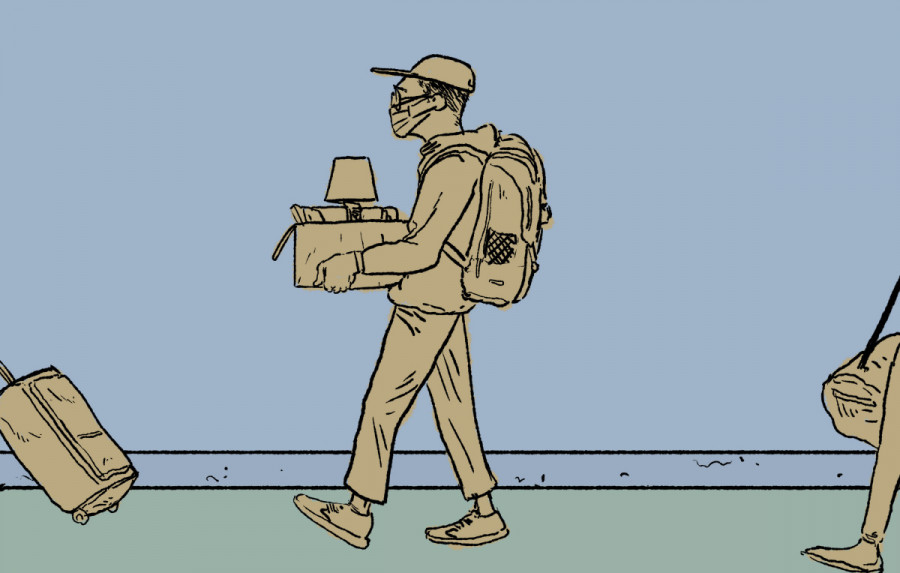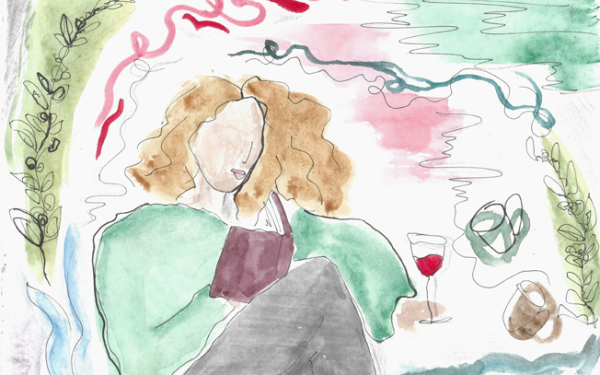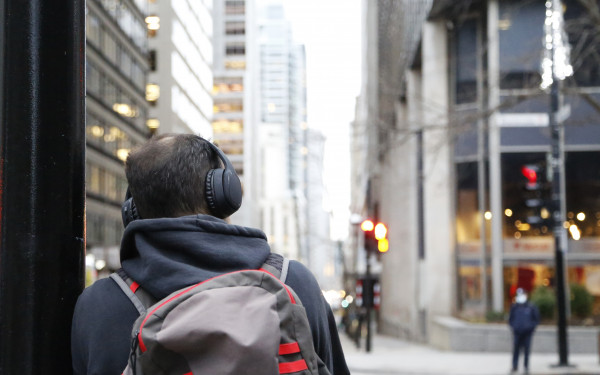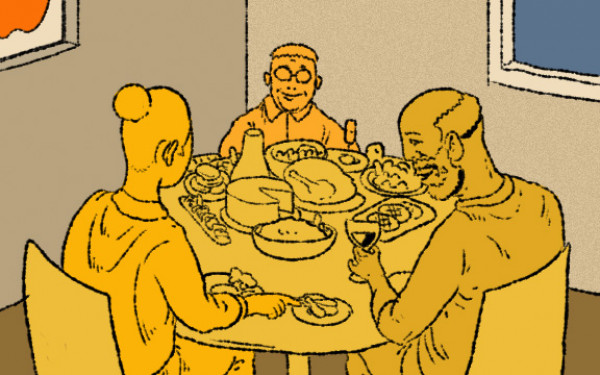When the dorms abruptly closed
A first hand recount from an RA
On March 16, 2020, three Concordia students and I, all resident assistants at the Loyola campus, huddled around an iPhone in the Buzz cafeteria. On the screen, Prime Minister Justin Trudeau was addressing Canadians, and what he said left the four of us shocked.
He announced that he would be closing our borders to the outside world and urged all Canadians abroad to come home. I had speculated this would have been a possibility, but I was still jolted with excitement, dread, and more questions. I knew I was experiencing history; I knew the next weeks would be hectic.
I looked around the cafeteria, and several other groups were watching the same video. People started frantically discussing it, having to almost yell from afar, as everyone was at their socially distanced tables. Even still, we had no idea how momentous that statement was or just how much it would impact us in residence in the days ahead.
I remember earlier that day, before the announcement dropped, my phone blowing up about an emergency meeting with all the RAs. I knew something big was going to happen, just from the atmosphere of the meeting. Classes had been cancelled, so we were in a limbo state with nothing to do but worry about how bad this could get.
We learned the new rules that had to be enforced, all in keeping with social distancing. They were plentiful: group restrictions, guests restrictions, stricter quiet hours. Immediately I knew they would be difficult to keep in place, residents were excited. Fortunately, most were reasonably cooperative and no issue arose.
This news of the closure, which came in the form of a mass email, sent shockwaves through the dorms. I left my room for dinner, and residents stopped me every few metres, frantically asking me if I heard the news. I was already in the process of booking a flight home to British Columbia. The next two days remain the most hectic in my life.
Looking back at those intense days in March, I’ve often asked myself, “Did the university handle this situation well?” Taking into consideration that this was a global event which everyone was dealing with for the first time, I believe they did.
I saw both sides of the events of that week. I spoke and empathized with residents who were confused and frustrated by new rules and regulations. I also saw the side of the university management; who needed staff and RAs to communicate and rationalize the new rules to residents.
The rollout of all this was by no means perfect. Technical issues resulted in a faulty email account, so students with questions were, for a number of hours, emailing a non-working account. Constraints on confidentiality made communication difficult, with only partial and vague responses available to many of the students’ inquiries. This, along with deadlines to make travel plans, made the dorms a tense and unrestful place.
As for the closure of the dorms, local and national news certainly contributed to the minor hysteria of it all. Headlines from CBC, CTV, and the _Montreal Gazette_ framed our situation as an absolute closure and mass eviction. In actuality, this was hardly true. Any resident who couldn’t get home for reasons of border closures or other transportation issues could stay in the dorms, and a large number ended up doing so.
Regardless, there were plenty of negative reactions. Petitions, opinion pieces, and forum posts are just some of the forms of backlash the university faced. Ironically, the vast majority of this flak came from outside of residence. From within, most students understood the reasoning behind the decision. I can’t remember any incidents or conversations that had the same sense of anger as Reddit posts, tweets, and articles.
My opinion is that the media, especially the news, preferred to push the narrative of an uncaring university sweeping all the residents out, and the residents taking a stand to stay longer in their homes. Having experienced it firsthand, I can say that this is a very much sensationalized and untrue encapsulation of the events that took place.
I know I am never going to forget what those days felt like. I knew I had to stay calm and composed. I was, after all, still working in a leadership role in the dorms. But I could not help but worry more things could go wrong, this was afterall the start of a period where anything could happen. I’d be lying if I said I wasn’t just as anxious as the residents who I was supposed to be a support line for.
Several months later and well into the online fall 2020 term, I feel strangely detached from the experience in March. In an almost surreal sense, I feel like it never happened. Like it was just a dream. But it was very real and had very real-life impacts for myself, Concordia students, and the university administration. I came out of it all a bit mentally battered—like everyone else involved—but stronger nonetheless. I gained a nuanced understanding on how crises are solved, what can go wrong, and how the outside world can react in unhelpful ways.
Getting the residents out of the dorms was a top priority. We look back now and see that Montreal exploded as arguably the biggest COVID-19 hotspot in the country. Who knows what would have happened if everyone stayed. I don't want to think about the consequences. I’d wager nothing good.
I just hope 2021 will bring with it a safe reopening of residence life.







